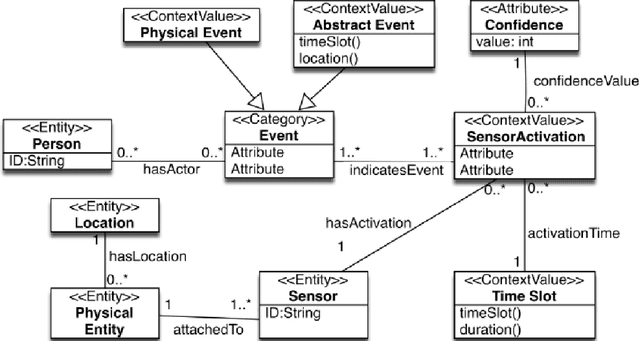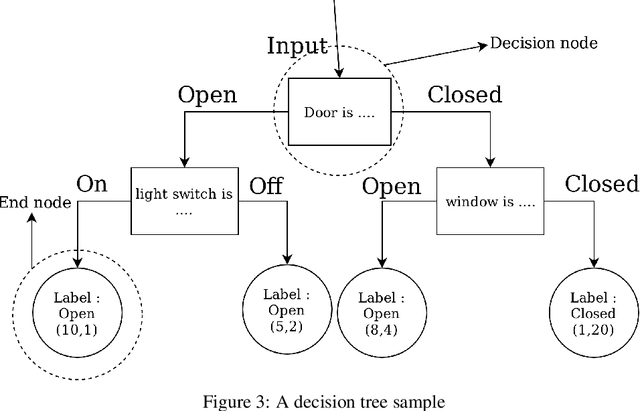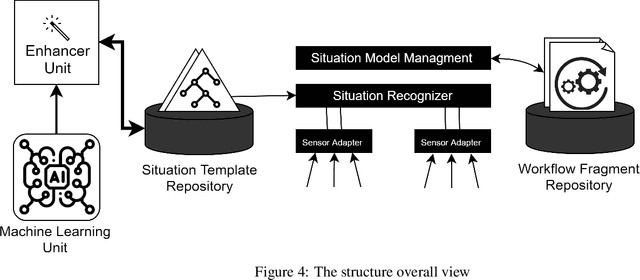Mohammad Amin Fazli
Hybrid-Learning approach toward situation recognition and handling
Jun 24, 2019



Abstract:The success of smart environments largely depends on their smartness of understanding the environments' ongoing situations. Accordingly, this task is an essence to smart environment central processors. Obtaining knowledge from the environment is often through sensors, and the response to a particular circumstance is offered by actuators. This can be improved by getting user feedback, and capturing environmental changes. Machine learning techniques and semantic reasoning tools are widely used in this area to accomplish the goal of interpretation. In this paper, we have proposed a hybrid approach utilizing both machine learning and semantic reasoning tools to derive a better understanding from sensors. This method uses situation templates jointly with a decision tree to adapt the system knowledge to the environment. To test this approach we have used a simulation process which has resulted in a better precision for detecting situations in an ongoing environment involving living agents while capturing its dynamic nature.
 Add to Chrome
Add to Chrome Add to Firefox
Add to Firefox Add to Edge
Add to Edge